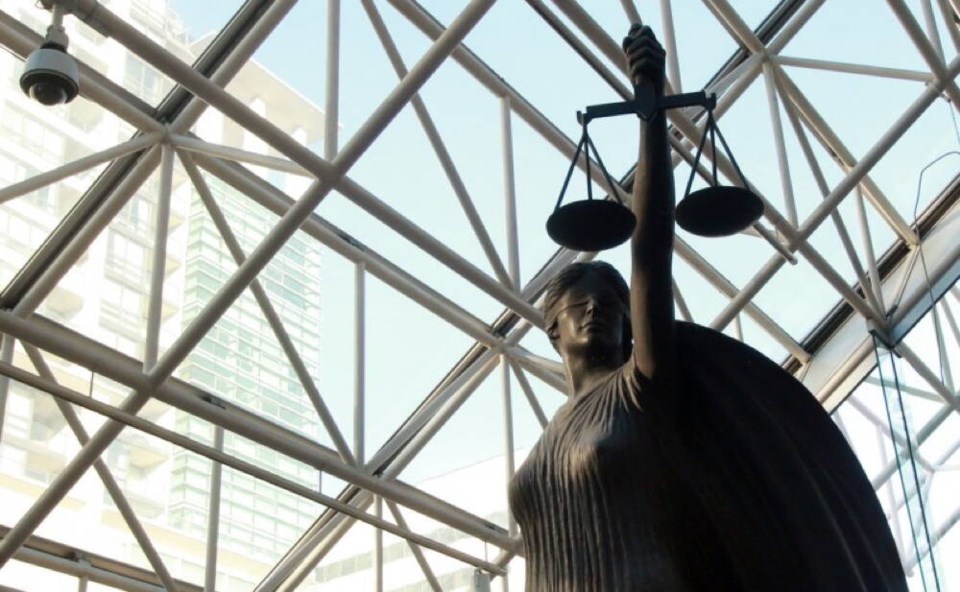Warning: This story has disturbing details about child sexual abuse.
A man who was sexually abused for several years by a tutor recommended through his elementary school in the Greater Victoria School District has been awarded $2.3 million in a civil suit.
Named only as H.N. in court documents, the man, who is now 35 and living on the Lower Mainland, sued the district, former teacher William Haisell and the estate of volunteer tutor Gary John Redgate, who died last year.
Lawyer Sandra Kovacs, who represented H.N., said to her knowledge, it’s the biggest “compensatory damages” award in Canada. Compensatory damages refers to harms and losses to a person.
“This was a really important case for demonstrating the severity of the injury. … It really does move the needle in Canadian jurisprudence, for sure.”
In this case, the psychiatrist who examined H.N. concluded he had post-traumatic stress disorder resulting from childhood sexual abuse. Kovacs said what happened to H.N. affected his capacity to pursue joy.
Claims against Haisell, who had connected volunteer tutor Redgate with H.N., were withdrawn during the October trial. “On the evidence, neither Mr. Haisell nor anyone else at the school had reason to suspect that Mr. Redgate posed any threat to H.N.,” B.C. Supreme Court Justice Simon Coval said in his decision.
Redgate had been a teacher in the Greater Victoria School District for 25 years, retiring in 1997.
Prior to his death, Redgate did not take part in the court proceeding because of compromised mental capacity in his later years, Coval said in a review of court proceedings.
Coval said he fully accepted H.N.’s evidence regarding the abuse he suffered and its effects.
The award from Redgate’s estate includes $1.9 million for loss of future earnings, $225,000 for aggravated pain and suffering and $47,500 for future care.
Coval dismissed claims against the school district for vicarious liability. Kovacs said H.N. is considering an appeal on that issue.
“My goal in bringing this litigation has always been to ensure that this doesn’t happen to another child,” H.N. said in a statemen, adding he is “deeply disappointed” that the court did not hold the school board liable for Redgate’s actions.
The current state of the law on vicarious liability of institutions is not effective in keeping children safe, H.N. said.
“I am encouraged by the court’s award, as it makes a strong recognition of the gravity and extent of harm Redgate inflicted on me as a young child and the impacts of which I will deal with for the rest of my life.”
“But it is clear survivors of sexual violence and exploitation have a long way to go before complete justice can be achieved.”
H.N.’s claim for punitive damages against the estate was also dismissed because Redgate is no longer alive. Punitive damages are applied to punish someone for their behaviour and for specific deterrence.
The sexual abuse spanned approximately six years and included psychological manipulations and emotional abuse, Coval said.
H.N. was initially connected with the tutor after his mother and teacher decided his Grade 6 classes weren’t challenging enough for the keen student, who was writing a novel.
Redgate was recommended to guide H.N. and in late 1999, H.N. began weekly tutoring sessions at the school.
The following year, the boy began going to Redgate’s house. H.N. described Redgate’s advances as incremental and said the physical abuse started some time after Grade 6 wrapped up.
Redgate would sit ever closer to H.N. at their sessions. From sitting across a table, he moved next to the boy, close enough for their arms to touch, the court was told.
At the house, Redgate hugged H.N. when it was time to leave. He became “increasingly attached and infatuated,” calling H.N. his best friend. Redgate said that without H.N. in his life, he would have nothing to live for and made threats of suicide.
Goodbye hugs began to include kisses. Redgate expressed romantic feelings for H.N. and would have the boy lie on top of him. He showed H.N. his penis at least once. Redgate put his hands down the back of H.N.’s pants and squeezed his buttocks, court heard.
H.N. said he never reciprocated Redgate’s feelings and tried to put him off.
In retrospect, H.N. realized he was manipulated by Redgate into feeling badly for him. He told the court that he felt guilt and discomfort because what was happening seemed so wrong.
It ended when the boy was 15 or 16 and told Redgate it was over, the judgement said.
After high school graduation, H.N. took part in reckless behaviour, such as crashing motorbikes and using alcohol and drugs, Coval said.
A psychiatrist diagnosed H.N. as having post-traumatic stress disorder from childhood sexual abuse.
“It changed the arc of H.N.’s life and left an ‘indelible mark’ … on his emotional, psychological, moral, cognitive and personality development,” the judge said.
Since adolescence, he has struggled with feelings of being lost, unmotivated, at times depressed, angry or shut-down. “Major developments or decisions have led to chaotic emotions.”
Today, H.N. uses “emotional isolation and avoidance to manage the lingering aftermaths of his lengthy abuse, Coval said.
Before the abuse, H.N. had a passion for learning and superlative academic performance. If not for the abuse, it’s likely he would have earned an undergraduate degree and there is a real possibility he would have gone on to obtain a post-graduate degree or degrees, Coval said.
Coval praised H.N., saying he has “persevered admirably through the consequences of what occurred and built a good life for himself with the help of those closest to him.”
The evidence is clear that H.N. has suffered the types of harm associated with such events, Coval said: “Psychological harm that persists through childhood and steals much of a person’s youth and innocence, and long-term harm that remains a heavy burden throughout adulthood.”



